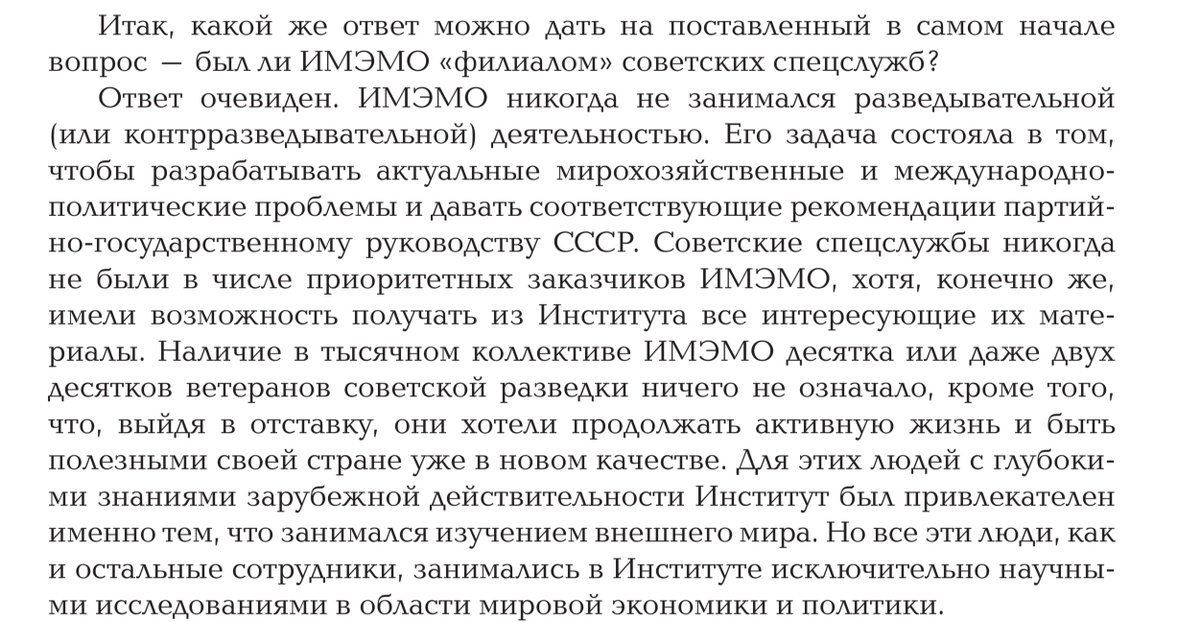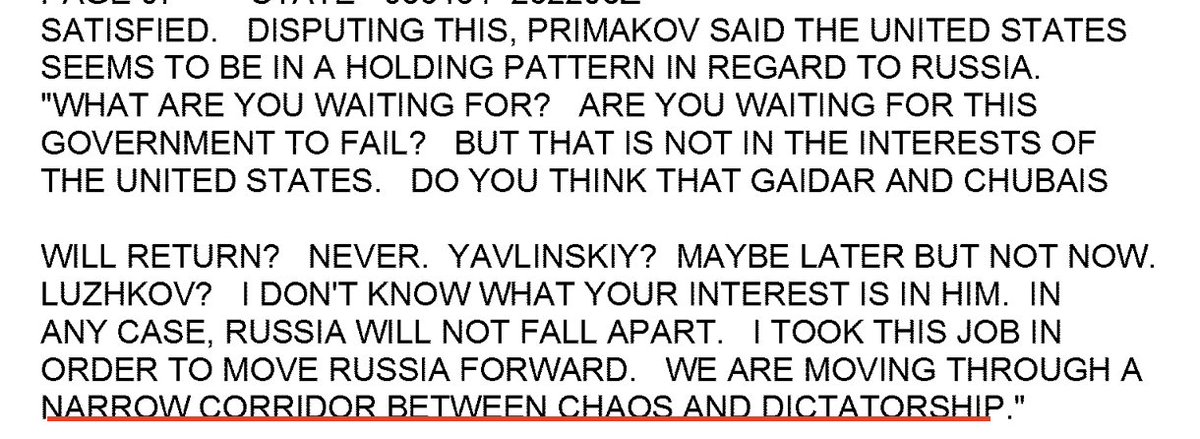
Well I don't normally respond to tweets from people I don't know but this thread allows me to highlight some further problematic sourcing in Belton's book. You can see that here Belton argues that certain "progressive members" of the KGB working at IMEMO had pushed for reforms.
https://twitter.com/DylanPrimakoff/status/1317856614469169155
You begin to wonder here who Belton is specifically referring to. The Institute of World Economy (IMEMO) was generally known for "liberal" proclivities, and this had little to do with the KGB or the GRU.
The Institute's director Nikolai Inozemtsev was attacked by the Party hardliners for "revisionism," and had to leverage his ties with Brezhnev to protect himself and his institute. You begin to wonder whether Belton had read anything on IMEMO history.
One useful work is Petr Cherkasov's well-researched volume on IMEMO. Here is the link: imemo.ru/publications/i…. In one of the chapters, Cherkasov explicitly addresses the question of whether IMEMO was connected to Soviet intelligence.
He goes on to explain that of course the KGB and GRU occasionally benefited from the think tank's output - but so did many other Soviet party and state agencies: this is what Soviet research institutes did - they worked for the government. Here's Cherkasov's take (in Russian): 

He even discusses the biographies of various people who had intelligence connections (but had retired) (don't think any of them are mentioned by Belton). You'd expect Belton to cite Cherkasov, since she explicitly makes the KGB-IMEMO-reforms connection. She doesn't.
She later brings up several people as "examples" of IMEMO's connections to intelligence - among these, Yevgenii Primakov. Here's what she says of Primakov. Notice that there's no footnote. 

Now, people will say: this is just common knowledge! Everyone knows that Primakov was a KGB guy working in the Middle East, and he later became the head of Russian Foreign Intelligence! Sorry, I don't deal in such hearsay.
Primakov, sure enough, worked in the Middle East but he did not work there "under cover" as a Pravda correspondent. He actually worked there as a Pravda correspondent. Yes, he sent reports to the CPSU, and he was occasionally entrusted with sensitive diplomatic tasks.
But this did not make him a KGB cadre. Indeed, in his memoirs (which Belton doesn't cite), Primakov explains what he was doing in the Middle East. I would not say these memoirs are particularly reliable (Primakov is known for distortions) but they are certainly worth citing.
It's also worth citing interviews with Primakov's grandson who, when directly challenged about his grandfather's work for the KGB, had this to say: 

So, is it fair to say that some KGB elite "ensconced" in IMEMO were behind Soviet economic reform initiatives? No, it's not fair, and it's not good history. People working at IMEMO were members of the Soviet academic elite, and of course they had contributed to the perestroika.
But the KGB connection, which posits that IMEMO was so progressive since its researchers had been exposed to the West through foreign intelligence operations simply doesn't hold water.
• • •
Missing some Tweet in this thread? You can try to
force a refresh











